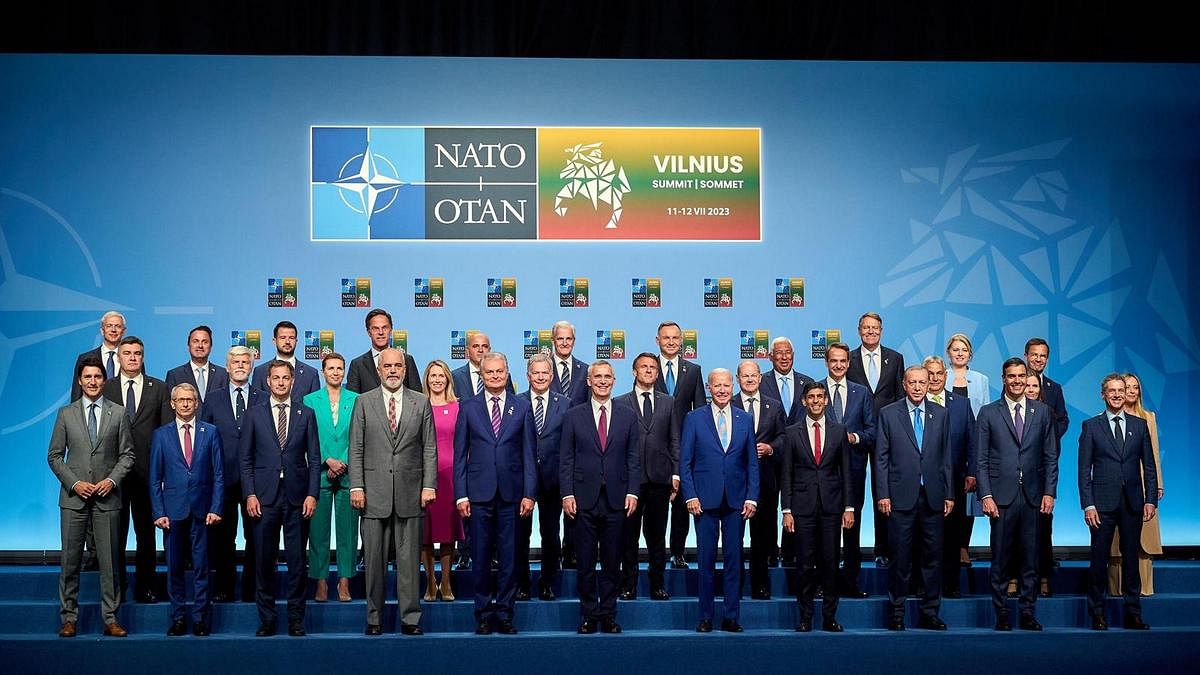NATO Summit Attendees

The NATO summit was attended by heads of state and government from all 30 member countries. This included US President Joe Biden, UK Prime Minister Boris Johnson, French President Emmanuel Macron, German Chancellor Olaf Scholz, and Canadian Prime Minister Justin Trudeau.
As world leaders gathered at the NATO summit, a shadow of doubt hung over the proceedings. The specter of “congenital liars” ( congenital liar ) threatened to undermine the trust and unity so essential to the alliance. The ability to discern truth from falsehood was paramount, as the summit sought to navigate the treacherous waters of international relations.
The attendance of these leaders demonstrates the importance of NATO to its member states. It also sends a strong signal of unity and resolve in the face of Russia’s aggression in Ukraine.
NATO summit has always been a topic of discussion in recent times, and the latest one held in Madrid was no exception. The summit focused on the ongoing war in Ukraine, and the need for NATO to strengthen its defenses against Russian aggression.
Leaders from all NATO member states were in attendance, and they discussed a range of issues, including the future of the alliance and the challenges posed by China. The summit was a success, and it showed that NATO is more united than ever before.
For more information on the nato summit, please visit nato summit.
Key Participants
- US President Joe Biden: Biden reaffirmed the United States’ commitment to NATO and pledged to strengthen the alliance’s deterrence and defense capabilities.
- UK Prime Minister Boris Johnson: Johnson called for NATO to increase its defense spending and to develop a new strategy to counter Russia’s growing threat.
- French President Emmanuel Macron: Macron emphasized the need for NATO to adapt to new challenges, such as cyber warfare and terrorism.
- German Chancellor Olaf Scholz: Scholz pledged to increase Germany’s defense spending and to contribute more to NATO’s collective defense.
- Canadian Prime Minister Justin Trudeau: Trudeau reaffirmed Canada’s commitment to NATO and pledged to work with allies to strengthen the alliance.
Key Agenda Items
The 2023 NATO summit focused on several critical topics, including the ongoing war in Ukraine, defense spending commitments, and relations with China.
These discussions resulted in key decisions and policy shifts that will shape NATO’s future strategy and response to global challenges.
War in Ukraine
The summit addressed the ongoing war in Ukraine, condemning Russia’s aggression and reaffirming NATO’s commitment to supporting Ukraine’s sovereignty and territorial integrity.
NATO members pledged to continue providing military, financial, and humanitarian aid to Ukraine while exploring additional measures to strengthen Ukraine’s defenses.
Defense Spending
The summit highlighted the importance of increased defense spending among NATO members, recognizing the need to bolster collective security capabilities in light of emerging threats.
Members agreed to work towards the goal of spending 2% of their GDP on defense, a commitment that will significantly enhance NATO’s military readiness and response capacity.
Relations with China
The summit acknowledged the growing influence of China and its potential impact on global security.
NATO members emphasized the need for a comprehensive approach to engaging with China, balancing cooperation in areas of mutual interest with addressing concerns over its military expansion and human rights issues.
Outcomes and Impact: Nato Summit

The NATO summit yielded a range of outcomes, including agreements on strengthening the alliance’s collective defense and addressing emerging security challenges.
A key outcome was the adoption of a new Strategic Concept, which sets out the alliance’s vision for the next decade and beyond. The concept emphasizes the need to maintain a strong and credible defense posture, while also addressing new threats such as cyber attacks and hybrid warfare.
Enhanced Collective Defense
The summit also saw the announcement of a number of measures to enhance NATO’s collective defense capabilities. These included the deployment of additional troops to the eastern flank of the alliance, the creation of a new rapid reaction force, and the development of new air and missile defense systems.
Support for Ukraine, Nato summit
The summit also addressed the ongoing conflict in Ukraine. NATO leaders reaffirmed their support for Ukraine’s sovereignty and territorial integrity, and pledged to continue providing military and financial assistance.
Implications for Global Security
The outcomes of the NATO summit have significant implications for global security. The alliance’s enhanced collective defense capabilities will help to deter potential aggressors and ensure the security of its members. The new Strategic Concept also provides a clear roadmap for NATO’s future role in addressing global security challenges.